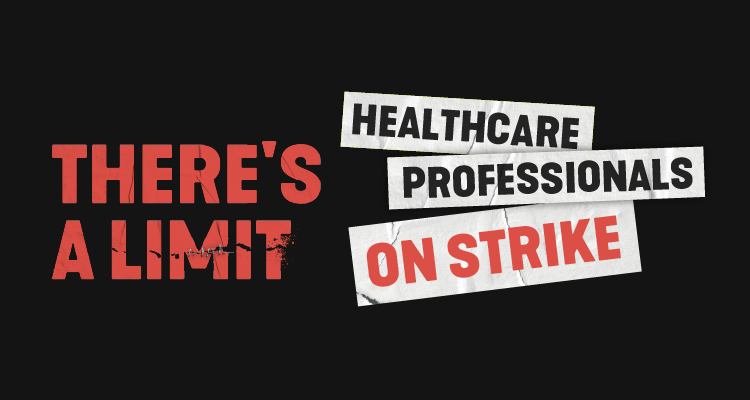
Third sequence of FIQ strike days : it is high time that the government shift into 4th gear at the bargaining table
Today, the Fédération interprofessionnelle de la santé du Québec–FIQ is starting its third series of strike days to turn up the pressure on the François Legault government, as it continues to make insulting offers to healthcare professionals. The 80,000 healthcare professional members of the Federation will be in the street again on December 11, 12, 13 and 14 to make themselves heard.
For several weeks, the CAQ government has been saying it wants to reach an agreement with nurses, licensed practical nurses, respiratory therapists and clinical perfusionists. However, this desire for an agreement isn’t really showing up at the bargaining table.
“To discuss a topic as simple as parking for healthcare professionals, who are required to have a vehicle, it took 48 hours for the government’s negotiations team to respond to us. They cannot say that negotiations are a priority when it takes that long to discuss such simple things. François Legault and Sonia LeBel can say that negotiations are a priority all they want but things are not going fast enough at the table. They need to give their negotiators real mandates. While discussions have sped up in recent days and there has been some progress, there hasn’t been enough on essential issues for healthcare professionals. Workload and work-personal life balance are priorities that the government needs to take seriously,” said Julie Bouchard, FIQ President.
In addition to strike days, which will cause a slow down in the health network, several healthcare professionals will go to work in civilian clothes to visibly express their disagreement with the government’s proposals.
Working conditions a top concern
While the government insists on talking about salaries publicly, the FIQ would like to point out that the appalling working conditions in the health network are also at the heart of the dispute.
“Money is obviously important. We have to pay healthcare professionals what they are worth, in accordance with their expertise, and we will never accept an agreement that undermines this. But salaries are not the only thing at stake, there’s also working conditions. We have to stop exhausting healthcare professionals to the point where they only have two choices: to burnout or resign. This way of doing things is leading nowhere,” added Julie Bouchard.
Remember that public support is still largely behind healthcare professionals’ demands. “There’s no doubt that a large part of the population has understood that the fight nurses, licensed practical nurses, respiratory therapists and clinical perfusionists are waging is also a fight to improve the quality and safety of care provided to Quebec patients,” concluded the president.